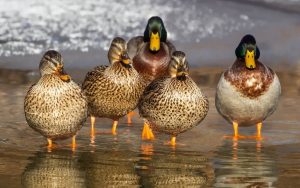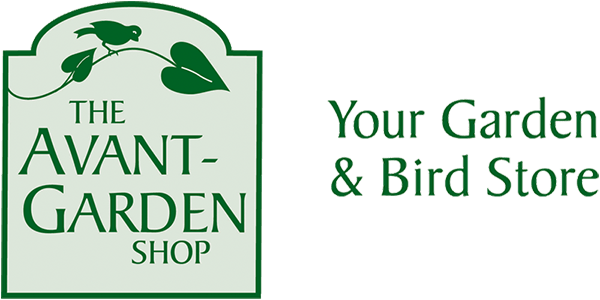 Feeding birds can be a source of tremendous pleasure. Whether songbirds at a seed feeder, woodpeckers at suet cage, or ducks and geese by a pond, watching them eat what you offer is at the same time exciting and calming. As the weather gets colder, migrating and overwintering birds can certainly use the extra calories afforded by a feeder that’s well-stocked with high-quality food.
Feeding birds can be a source of tremendous pleasure. Whether songbirds at a seed feeder, woodpeckers at suet cage, or ducks and geese by a pond, watching them eat what you offer is at the same time exciting and calming. As the weather gets colder, migrating and overwintering birds can certainly use the extra calories afforded by a feeder that’s well-stocked with high-quality food.
But, feeding birds inappropriate foods or neglecting feeder hygiene can cause a range of challenges for birds and do more harm than good.
The most common example of inappropriate food use is feeding bread to ducks and geese. Bread fills birds’ stomachs quickly while providing very little nutritional value. Waterfowl that are used to being fed by people will choose this over natural food sources and can end up not unhealthy enough that they can’t migrate successfully. The high-carbohydrate diet from bread can cause a syndrome called Angel Wing Disease in waterfowl, in which their wing bones don’t develop properly and end up twisted. Waterfowl with Angel Wing Disease can manage throughout the summer but are unable to migrate and often die. We carry small bags of corn and duck/deer feed for people who want to feed the ducks and geese.
Taking proper care of seed feeders is also extremely important. Moisture from unused seed can get mouldy and make birds sick or even cause die offs. Active feeders should be cleaned every 2 weeks:
- Scrub them with a brush and warm, soapy water.
- Rinse and air dry.
That might seem like a lot of work, but imagine eating off the same unwashed dishes in your home for 2 days, never mind 2 weeks! Skipping out on proper feeder sanitation can cause unnecessary disease and death and taking 15 minutes every couple of weeks is time well spent to prevent that.
We are proud to carry high-quality bird feed, seeds and mixes that are high in nutritional value, contain no fillers and few empty husks, are non-GMO and neonicotinoid-free. Remember that we also offer repair services for all of our feeders that come with lifetime warranties.
Check out our blog post from last November for other ways you can help the birds in your yard as the season gets colder.
